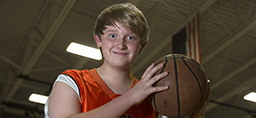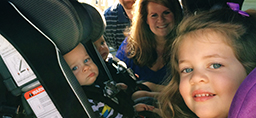
Whether high school, college, or even middle schoolers, kids are curious—and specifically curious about alcohol use.
The sports and entertainment industries, along with alcoholic beverage manufacturers, do a great job of making drinking seem attractive and fun.
And, responsible or not, if alcohol is part of life at home, it’s even easier for kids to think that it’s no big deal. But youth drinking is a big deal, and increasing numbers of binge drinking incidents show an even more alarming trend.
The facts are sobering
In the U.S., binge drinking is defined as consuming, at least once in the previous two weeks:
- Five or more alcoholic beverages in a row by males
- Four or more alcoholic beverages in a row by females
A 2013 Centers for Disease Control and Prevention Youth Risk Behavior survey revealed that more than one in five (21 percent) high school students binge drank within the past 30 days. Sixty-two percent of high school seniors report drinking alcohol more than once.
The risks are real
Lisa Lowery, MD, an adolescent medicine specialist with Spectrum Health Medical Group, urges every student to think twice.
“Binge drinking? Don’t do it,” she said. “You may think you are ‘just drinking,’ yet it’s easy to fail to realize how much you’ve had. When you are starting to ‘feel it’ you may easily have consumed three or four drinks in a short period of time. This puts you at increased risk of alcohol poisoning, which, especially if you pass out or ‘sleep it off,’ can lead to death.”
Kids aren’t likely to consider the down side of drinking. They probably won’t think about (or will dismiss) binge drinking, its risks and effects. But you can point out to them that:
- Drinking any alcohol under the age of 21 is illegal. You can get arrested.
- You are at risk for not getting medical attention, because your friends don’t want to get into trouble. This could kill you.
- A hangover, throwing up or passing out are likely.
- You may have to go to the hospital.
- Death can occur from alcohol poisoning or aspirating vomit.
- A crash could kill you or your friends.
- Addiction to alcohol is a serious, sometimes lifelong problem.
Expert advice on what to do
Dr. Lowery starts with candid advice for parents.
“Be open to the fact that at some point your kids will be offered a drink and are likely to participate in underage drinking,” she said. “You should have conversations with your teens that they may feel pressured to drink or keep drinking when they are in certain situations. Be realistic about what they might hear. ‘What dude…you’re stopping? You can’t hold your booze?’”
Are you thinking, ‘Not my child’? Don’t be too sure. Fox News’ recent spring break review offered a scary look at the reality—and dangers—of youthful recklessness, even if you’re a 21-year-old college student. Or, there’s this recent story from MSU.
Kids also participate in drinking games. Don’t be shy—share the reality, such as a recent HealthBeat story about beer pong highlighting the gross factor.
Be honest and be persistent in checking in with teens about drinking. They may withstand the pressure for a while, but if you let up, they might, too. Be lighthearted with a purpose, such as hosting a family role-playing session, where everyone in the family practices how they would respond to their friends in those situations, parents included.
This might cause a few eye rolls, but it can actually be a great ice-breaker about a tough subject. It can also pave the way to better communication going forward.
Make the pact
“Be the parent,” Dr. Lowery said. “Tell them you love them too much to let them be a statistic. That means not just one conversation about the hazards of drinking, binge or any underage drinking. Also have the conversation that if they give in and drink or may have to ride with someone who has been drinking, that they can call you for a ride, no questions asked.”
You don’t want your kids opting to get in a car while intoxicated or the driver is intoxicated with the fear of ‘I am going to get in trouble and they are going to yell at me.’
Finally, Dr. Lowery recommended that parents assess themselves, too.
“Are you modeling good behavior around alcohol?” she asked. “Do you always have to have a drink? Do you drink too much? Do you always use and discuss having a designated driver? Your behavior affects your child’s behavior.”
Make a family pact that everyone signs, promising:
- You will always know the address where your teen is going.
- You will verify that a responsible adult will be there and no alcohol will be allowed.
- If your teen leaves that address for another, he or she will notify you of the next place.
- If your teen consumes alcohol, they will call you for a ride.
- You will not ask any questions, but you will talk about it together the next day.
- If your teen does not call by an agreed upon check-in time, you will call them.
- If your teen does not answer the call, you will go to the address your teen reported.
- If your teen is with a friend, and your teen drinks, the friend will call you with no questions asked and no fear of punishment from you.
Because alcohol is so widely accepted in our society, it is all too easy to miss or ignore the reality that binge drinking kills more than 1,400 teens a year and contributes to thousands more teen deaths through alcohol-related accidents and driving deaths.
Keep your family alive and safe. Talk about drinking, often.
 /a>
/a>
 /a>
/a>
 /a>
/a>